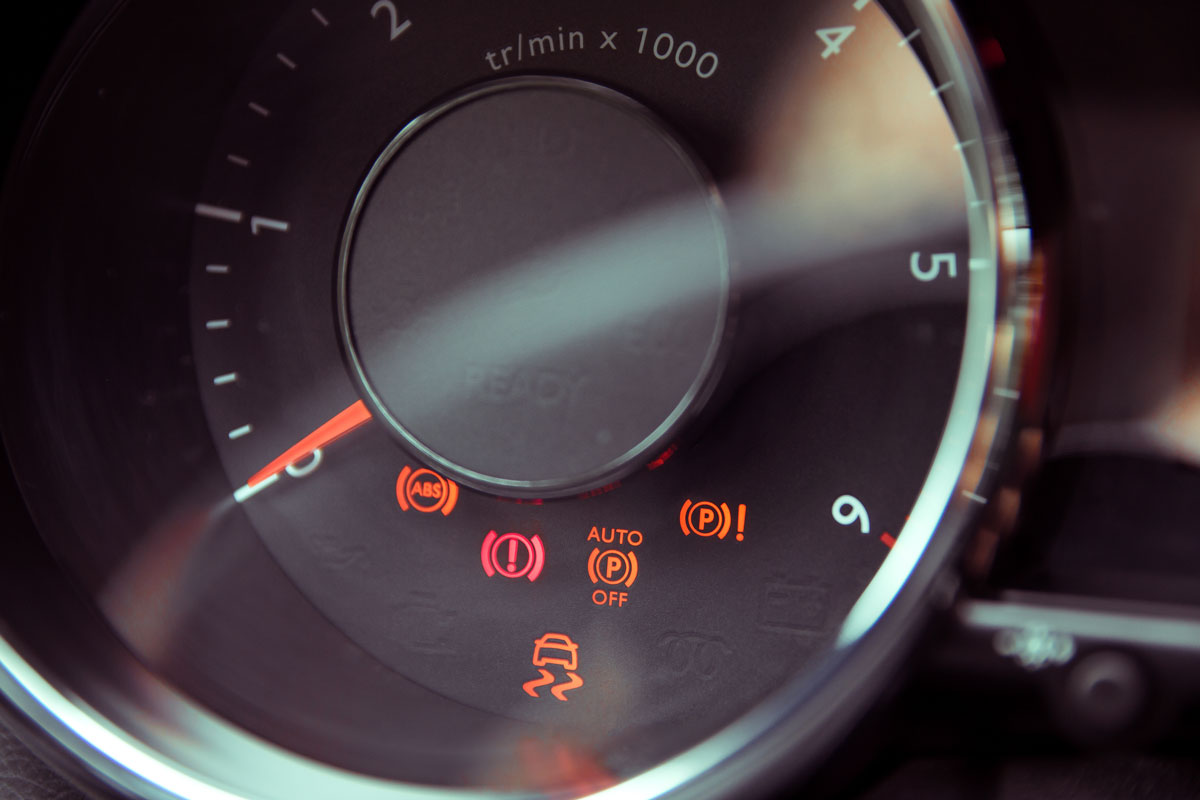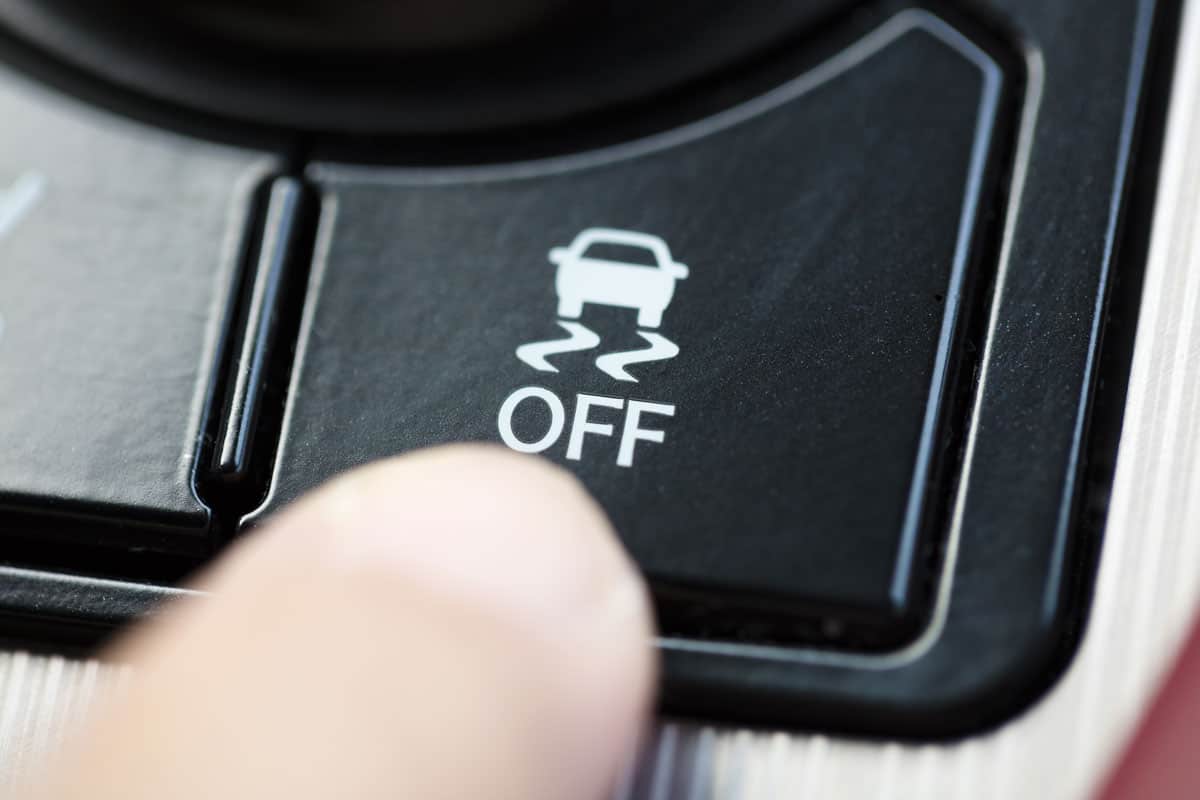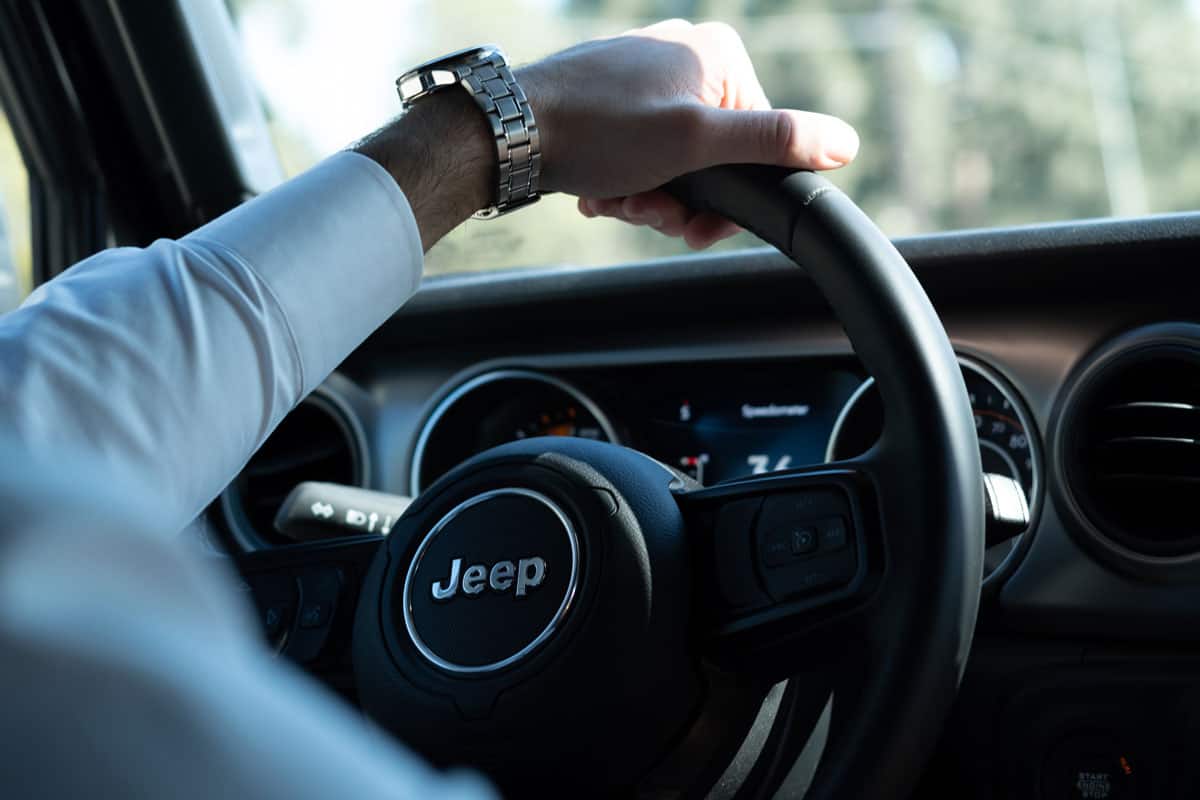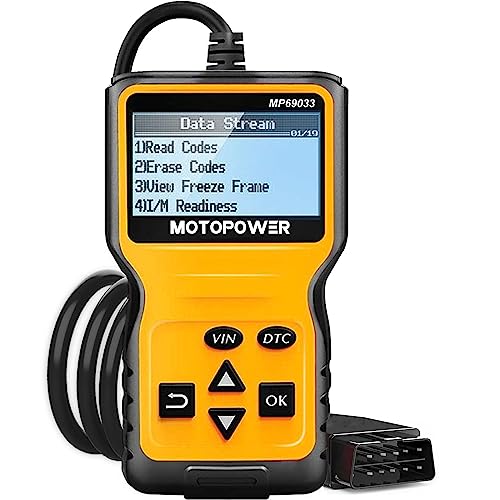Seeing your Jeep's ABS and traction control lights come on can be alarming, especially while you're driving. We researched why this happens and what you should do about it, and here is what we learned.
The most common reasons why a Jeep's anti-lock braking system (ABS) and traction control system (TCS) lights turn on are:
- Faulty ABS and traction module
- Poor road conditions
- Central computer system issues
- Broken wheel speed sensors
- Bad wheel alignment
- Faulty battery connection
- Traction control turned off
With an OBDII scanner, you can read the codes associated with the issue. You can identify the cause of the problem and figure out how to fix it.
Keep reading as we explain how the issues mentioned above cause the ABS and TCS warning lights to turn on, if it's safe to continue driving with the lights on, how to reset the ABS module, and more.
Causes Of A Faulty ABS And Traction Module
It's possible that the ABS controller stopped functioning. The traction control light could also come on due to a problem with the brake system, such as an unresponsive brake pedal.
Typically, the ABS and TCS are controlled by a shared module. So, it's not unusual for both these warning lights to light up when one of the components malfunctions.
How To Detect If The ABS And Traction Control Module Is Broken
Aside from the ABS & TCS lights turning on, here are other signs that the module is damaged:
- You'll know something is wrong with your ABS & TCS module when you observe the locking up of your wheels. It is most evident when you step on your brakes.
- Another sign is difficulty in handling the brake. When you feel the brakes are unresponsive or exert too much effort in braking, your ABS module may be broken.
- You'll also have difficulty maneuvering your vehicle in bad weather conditions when your car's traction control is not working.
- Lastly, there will be inaccuracy in the speedometer reading of your vehicle when the ABS & TCS module is malfunctioning.
What Is The Replacement Cost Of An ABS And TCS Module?

Depending on the model, the replacement cost may vary. In general, the price may range from $320 to $1,000.
Listed below are the costs of repair for some Jeep vehicle models:
- Jeep Cherokee- $600 to $950
- Jeep Wrangler- $560 to $592
- Jeep Compass- $566 and $605
Other Possible Causes Of ABS And TCS Lights Illuminating

Your ABS and TCS lights might come due to the following:
Poor Weather And Road Conditions
Bad roads and poor weather conditions could cause your vehicle's traction control to stop working. However, if the light is constantly on, even if the weather and road condition is good, have it checked by a professional to fix the issue.
Central Computer System Issues
The primary computer system of most Jeep vehicles is called PCM. This control module manages the vital operations of your Jeep, like shifting gears and ABS, among others.
Losing fuel economy and failing your state's emission inspection are possible effects of a failing PCM. Additionally, it can cause the engine to backfire, be difficult to start, shift jerkily, and rapidly degrade essential engine parts.
When the TCS light comes on, and there are no other physical component problems, the central computer is usually to blame.
Typically, a PCM replacement costs range from $500 to $1,500. The material may cost between $200 and $1,000, depending on the quality of the product you'll use.
You can refer to the table below for the repair and replacement costs of some Jeep models:
|
Jeep Model |
Materials Cost |
Labor Cost |
Total Replacement Cost |
|
$633 to $674 |
$48 to $60 |
$680 to $735 |
|
|
$570 to $642 |
$46 to $58 |
$606 to $700 |
|
|
$456 |
$44 to $56 |
$500 to $512 |
|
|
$749 |
$44 to $56 |
$793 to $805 |
Faulty Sensors
The wheel speed and steering angle sensors might cause your ABS and traction control light to turn on.
Wheel Speed Sensor
The wheel speed sensor is an integral aspect of your Jeep's ABS. It is employed to determine the direction and speed of your wheels. It transmits data to the computer in your Jeep to change the braking pressure as necessary.
Your traction light is continually on when your wheel sensor malfunctions and sends incorrect information to the computer.
Steering Angle Sensor
On the other hand, the steering angle sensor is in charge of transmitting crucial information regarding the angle of the steering wheel and the wheel speed to the car's computer system.
It enables the vehicle to carry out several safety activities. If this sensor is damaged, the transmitted data to the TCS may be incorrect, which may turn on the ABS and TCS lights.
Click here to see this wheel sensor on Amazon.
Bad Wheel Alignment
Your Jeep may be thrown out of alignment if it receives an unintended jolt or runs over curbs or potholes. The wheels will experience low pressure when this occurs, signaling the computer, and the ABS and TCS lights will turn on. Additionally, your wheels' performance may suffer from incorrect alignment.
Faulty Battery Connection
The computer system of your Jeep depends on the electricity from your battery. So if the connection between the alternator and the battery is bad, the battery might lose charge.
As a result, your car's computer sends and receives incorrect signals, making your ABS and TCS lights turn on. Additionally, the battery is an essential vehicle component and can generate several error codes if the terminals are misconnected.
Manually Turned Off Traction Control

You may have forgotten to reengage the traction control after manually turning it off or accidentally disabling this feature. Either way, the corresponding warning light will illuminate due to a disengaged traction control.
How To Reset The ABS And TCS Lights

You can manually reset the ABS and TC lights without using an OBDII scanner. Unplug the battery terminal cables while the ignition is off, commencing with the negative terminal and the first positive wire.
Link the two terminals by use of a battery jumper lead. Start the ignition and unlock the driver's door for 20 to 25 minutes. Doing this drains the excess power in your car's electrical system, which then turns off the light.
Click here to get this OBD2 scanner on Amazon.
On the other hand, if you have an OBDII scanner, you can reset your vehicle's ABS and TCS lights. First, locate the OBD port of your car, which is usually found in the passenger compartment. However, check the car's manual to verify the port's location.
Next, turn on the scanner and type in the make and model of your car. Then find the right system suited for your vehicle and erase the codes from your ABS/TCS system. For newer Jeep wrangler models, you can reset it by holding down the control switch for three seconds.
What If The ABS And TCS Lights Come Back On After Reset?
When these warning lights don't turn off even after you reset the system, let a professional check and diagnose the root cause. You could also try checking the sensors. Change the sensor as soon as possible if that is causing the light to stay on all the time.
Can You Continue Driving With The ABS And TCS Lights On?
No, you cannot. Driving is dangerous if both indicators are illuminated. The lights denote significant issues with your car.
If you are on the road, stop in a secure location and restart your car briefly to determine whether the lights will come back on. This procedure should enable you to rule out the possibility that the warning lights were simply an accident.
In contrast, the lights come on again, stop driving and call a mechanic to have the system diagnosed. If you have to keep driving, be careful and try not to brake or accelerate abruptly because these actions could cause wheel slippage.
To Sum It Up

There are several possible reasons why your ABS and TCS lights may come on. It may be because you intentionally disabled the traction control feature, or something may be wrong with your ABS and traction control module.
It can also be because you're driving in bad road and weather conditions, your wheels are out of alignment, you have faulty wheel speed and steering angle sensor, or the connection to the battery is broken.
You should stop driving if the ABS and TCS warning lights come on. Look for a place to safely pull over, and immediately contact your trusted mechanic to check and diagnose the issue.
Before you leave, you can check out these related articles here:
My Jeep Grand Cherokee Says Transmission Over Temp - Why? What To Do?
My Jeep Shuts Off While Driving & Won't Start Back Up - Why? What To Do?


